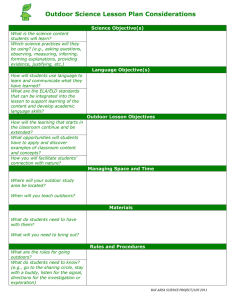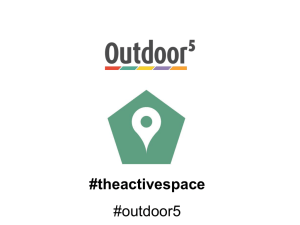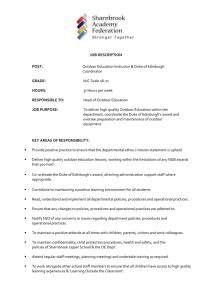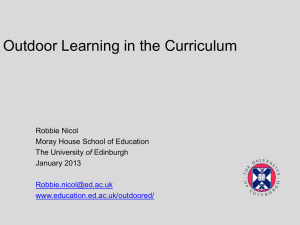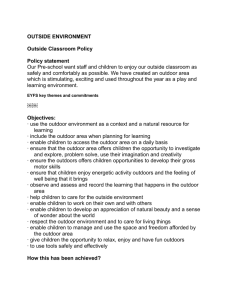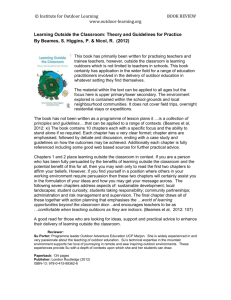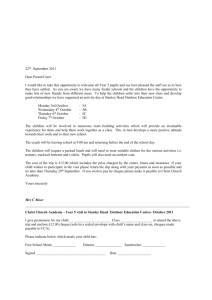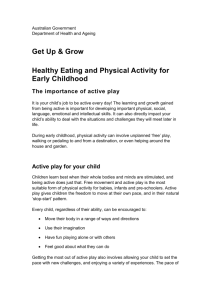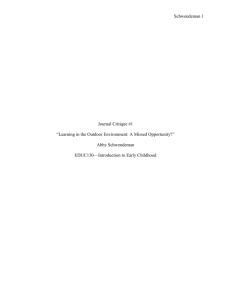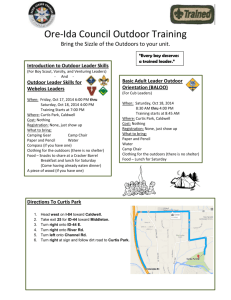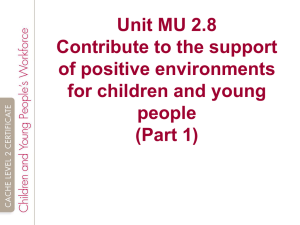What do you think about when you think of
advertisement
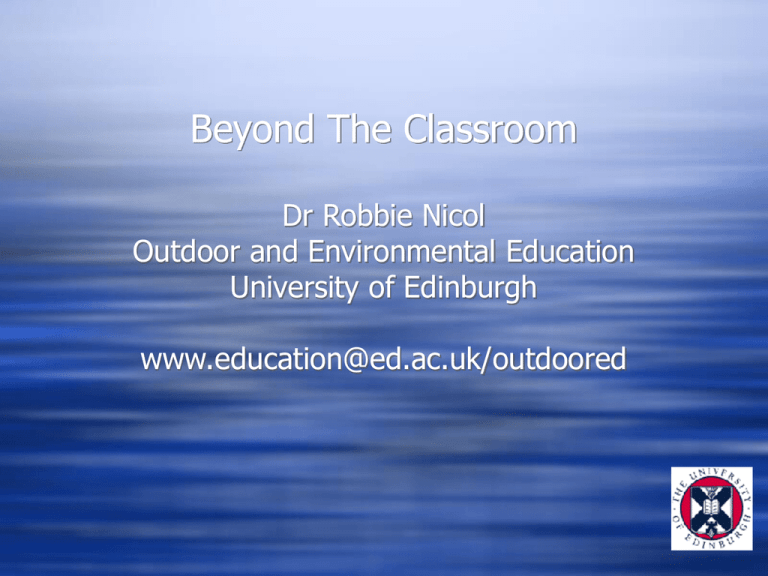
Beyond The Classroom Dr Robbie Nicol Outdoor and Environmental Education University of Edinburgh www.education@ed.ac.uk/outdoored Do you recognise this person? Quic kTime™ and a TIFF ( Unc ompres s ed) dec ompr ess or are needed to s ee this pic ture. Range and Scope of Outdoor Learning Physical activity Tackling obesity Life-long activity Skill development Adventure sport Sustainability Field Studies Biodiversity Awareness of local area Cultural landscape STEM subjects Wellbeing ‘Greenspace’ Environmental Education Outdoor activities Outdoor Learning Personal & Social Education Self-awareness Self-esteem Social development Communal living OUTDOOR LEARNING To what Degree are we dealing with: Knowledge Attitudes Feelings Is learning outdoors different from learning indoors? What are they learning? A structure for programme design? Aims Assumptions Content Methods Evaluation Claims A River walk Aims Assumptions Content Methods Needs to be developed. Linked to other activities, e.g.walking, climbing skills Half-day - Kilmun Gorge. Instructor organised but students often leading Give support when needed. Ask each to lead stages. Ask them to consider rest of group Peer review at end of walk/day Change in selfawareness? Anecdotal Temporary? Issue/problem based discussion over lunch, and at times during trip (content & values) Raise issues again during canoe journey and rock climbing. Level of knowledge & understanding Temporary? Ask students to consider long term fitness Anecdotal Temporary? PSD (g. selfawareness) Response to dealing with success or failure at times. Awareness of anxieties (slips, heights, water, cold etc). Environment (e.g. sustainability, biodiversity) Water cycle; erosion; sensitivity of ecosystem; photosynthesis CO2 & climate change Basic knowledge Theory covered at school Questions: Where does water come from & go to? Is weather the same as climate? Impact of groups. Physical skills (e.g. motor control, fitness, water safety) Confident walking, scrambling. Aerobic Capable based on observations on earlier walk Discuss foot Individual input placement, pace etc during walk Evaluation Claims Why Learn Outdoors? Connection ‘It is our sensory immersion that most profoundly links us to the land.’ Professor Anthony Weston It is the lack of sensory immersion and outdoor experiences that leads people to be unaware of their connection to nature. Outdoor Learning and Sustainability Opportunity to experience nature and its physical and biological processes This helps to understand our dependence (often hidden) on nature Summary STEM subjects knowledge + sensory immersion in the outdoors = an organising framework for sustainability Dr Robbie Nicol Outdoor and Environmental Education University of Edinburgh www.education@ed.ac.uk/outdoored
